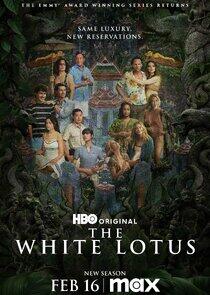Comedy Connections - Season 6

Season 6
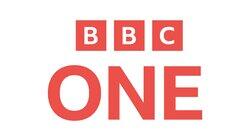
Episodes
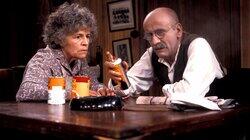
Till Death Do Us Part
The series charting the history of the best of British comedy returns for a sixth series by taking a look at Till Death Do Us Part, which burst onto screens in June 1966. The sitcom was the most controversial, offensive and original programme of its time with the foul-mouthed, East London bigot, Alf Garnett, becoming one of Britain's greatest comedy characters. Comedy Connections reveals how Peter Sellers was the original choice to play Alf, lifts the lid on the simmering tensions between actors Warren Mitchell and Tony Booth, and discusses the language and racial attitudes displayed by Alf Garnett.
Till Death Do Us Part courted controversy from the outset and became the bete noir of Mary Whitehouse's Viewers and Listeners Association, which complained, not about the show's racist language, but the use of the word 'bloody'. Despite this, family Garnett were fought over by the BBC and ITV, appearing at various points on both networks for nearly 40 years.
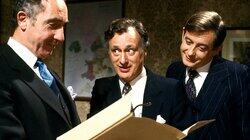
Yes, Minister
The series charting the history of the best of British comedy looks at Yes, Minister and follow-up Yes, Prime Minister, which charted the rise of an unlikely Prime Minister and achieved massive success over five series.
Written by Jonathan Lynn and Antony Jay, the satire captured the public imagination by revealing the behind-the-scenes wheeling and dealing of Westminster. Aided and abetted by secret informers who had sat right at the heart of government, Jay and Lynn created a civil service comedy that still rings true today and made stars of Nigel Hawthorne, Derek Fowlds and Paul Eddington.
Comedy Connections reveals that when Antony Jay first spoke to Jonathan Lynn about the idea, Lynn thought it was boring and turned it down, that the BBC's Head of Comedy had to bully Paul Eddington into taking the part of Jim Hacker, and the considerable political differences between the show's writers.
Also, how the 1979 election delayed the show's debut, the effect of being told that he was to become Prime Minister had on Paul Eddington, and why Antony Jay got his knighthood.
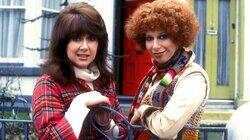
The Liver Birds
Series charting the history of the best of British comedy. A look at The Liver Birds, a groundbreaking sitcom centred around the lives of two young Liverpudlian women.
Not only was it one of the earliest successful shows to be written by and starring women, it also survived the loss of two central characters and was so well loved in the 1970s that it returned for a controversial reunion in the 80s.
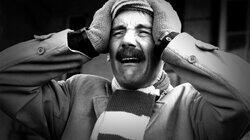
Ripping Yarns
The series charting the history of the best of British comedy investigates Michael Palin and Terry Jones's post-Python parody of pre-war Boys' Own adventure comics, which captured the decline of the British Empire at a time when punk rock offered Anarchy in the UK and the country was facing political unrest.
Ripping Yarns is a neglected gem amongst the many jewels proffered by the genius talents of Jones and Palin - the story of the series having a bittersweet ending, the break-up of their decade-long writing partnership, but also the birth of two incredibly successful solo careers.
Comedy Connections uncovers the fact that the BBC actually wanted a variety show from Michael Palin, but it evolved into Ripping Yarns and how hurt Michael Palin felt when director Terry Hughes took a promotion inside the BBC and left the programme. Terry Jones reveals his regret that Michael Palin only played the straight man parts, and how the ambition of the series - to be like little films - would eventually lead to its downfall, costs leading to the programme being abandoned half-way through the second series.

Rab C Nesbitt
Series charting the history of the best of British comedy. A look at Rab C Nesbitt, the sitcom about the life of a working-class Glaswegian, which ran for thirteen years and survived the death of a cast member to win audiences of five million viewers.
The programme reveals how the series was born out of a string of happy accidents, how it thrived despite its main star initially not wanting the role, how some Glaswegians struggled to accept the character and what a burden the character and resultant fame became for the star, Gregor Fisher. We also find out just where the 'C' came from in the eponymous character's name.

Sorry!
Series charting the history of the best of British comedy looks at Sorry!, the sitcom which ran from 1981-1988 and starred Ronnie Corbett as a middle-aged librarian who still lived at home with his domineering mother.
Corbett's character, Timothy Lumsden, not only tickled the nation's funny bones but also went on to influence a generation of younger comedians, such as Frank Skinner and Harry Hill. The writing team of Ian Davidson and Peter Vincent - who had also written for The Two Ronnies and Dave Allen - were adept at mixing comedy and drama, something few sitcoms were so successful at.
Comedy Connections reveals how Ronnie Corbett sought the opinion of comedy partner Ronnie Barker before committing to the project, how the writers knew they could take advantage of their star's diminutive size, quite how often Mother used to slap Timothy and that Timothy had a happy ending because the show's producer insisted on it before the start of the final series.
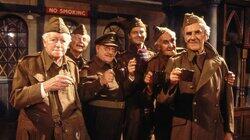
Dad's Army
Set in wartime Britain, the cast of Dad's Army featured many veterans of stage and screen including Arthur Lowe, John Laurie and Arnold Ridley. As well as creating a template for future ensemble sitcoms, the series established one of British TV's most successful writing partnership - that of Jimmy Perry and David Croft.
But Comedy Connections reveals that neither writer gave Dad's Army its name. Originally called Fighting Tigers, the new title was imposed on the show by the BBC's then Head of Comedy, Michael Mills. Other surprises include John Laurie expressing his disappointment that, at the age of 73 and after a glittering theatre career, he should become most famous for 'this crap', what happened when Ian Lavender asked the show's writers whether his character, Pike, was in fact Wilson's son, and what producer David Croft did with the audience feedback report after the screening of the show's pilot.
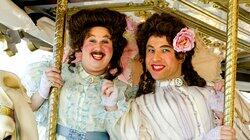
Little Britain
Series charting the history of the best of British comedy looks at Little Britain. The bright and bizarre comedy sketch show burst out of radio and onto television screens in February 2003, making international stars of its writers and performers Matt Lucas and David Walliams.
Little Britain was a candy-coloured confection of some of the most twisted, absurd, malevolent, yet somehow adorable comedy characters ever created. It became a worldwide phenomenon which defined the country at the start of the 21st century - whether the country liked it or not. But what did Little Britain tell us about life in this sceptic isle?
The programme reveals how several friends in high places helped bring Little Britain to television and how discussions of Martin Parr's social realist photographs played their part in setting the visual style of the series.
Recently Updated Shows

Star Trek: Strange New Worlds
Star Trek: Strange New Worlds follows Captain Pike, Science Officer Spock and Number One in the decade before Captain Kirk boarded the U.S.S. Enterprise, as they explore new worlds around the galaxy.

FBI: Most Wanted
FBI: Most Wanted is a high-stakes drama that focuses on the Fugitive Task Force, which relentlessly tracks and captures the notorious criminals on the Bureau's Most Wanted list. Seasoned agent Jess LaCroix oversees the highly skilled team that functions as a mobile undercover unit that is always out in the field, pursuing those who are most desperate to elude justice.
